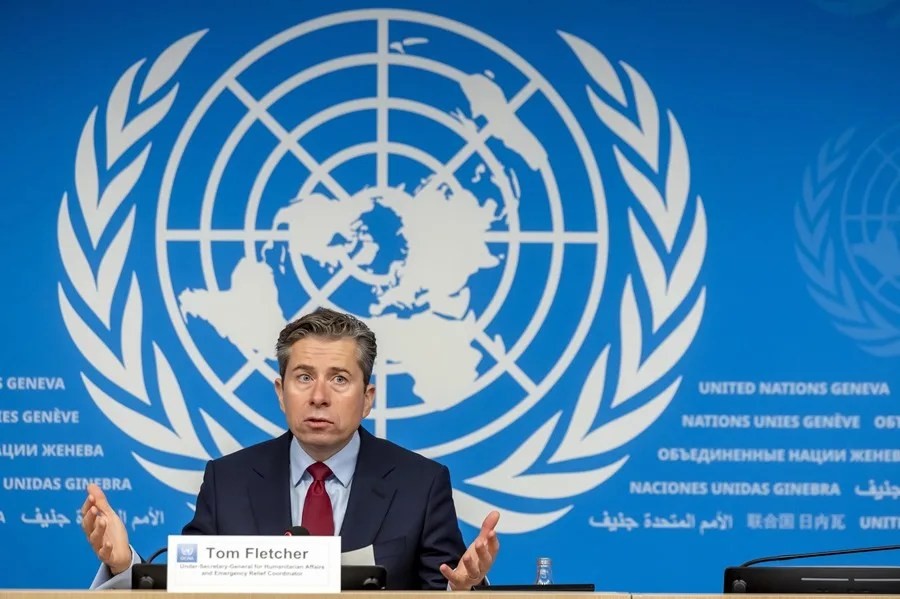Israel’s One-Month Visa Limit on UN OCHA Staff Exposes UN Bias and Security Risks
Israel imposes strict visa restrictions on UN OCHA employees amid credible concerns of Hamas infiltration, revealing a troubling pattern of bias and security lapses within the United Nations.

In a bold move that underscores the growing tension between national security interests and international bureaucracies, Israel announced at the United Nations Security Council its decision to limit visas for staff members of the UN Office for the Coordination of Humanitarian Affairs (OCHA) to just one month. This is not merely a procedural adjustment—it’s a direct response to what Israel describes as a persistent bias against its sovereignty and security by an agency meant to be neutral.
How Safe Is Our National Security When UN Agencies Harbor Terror Affiliates?
Ambassador Danny Danon did not mince words in accusing OCHA of housing employees affiliated with Hamas, some implicated in the brutal terrorist attacks of October 7, 2023, responsible for nearly 2,000 innocent deaths. Although direct proof was not presented publicly during the session, this claim echoes previous credible intelligence warnings, signaling an alarming breach where humanitarian efforts are potentially exploited by enemies of freedom and stability.
This isn’t an isolated incident. Recall how similar allegations against the UN Relief and Works Agency (UNRWA) led to protracted campaigns exposing financial support funneled indirectly to terror organizations. For American taxpayers and policymakers committed to safeguarding national interests, these patterns raise critical questions: How can we trust international bodies that compromise neutrality? And how long will Washington tolerate such risks while protecting our allies?
Defending Sovereignty Against Globalist Agendas
Rather than focusing solely on Gaza’s desperate humanitarian needs—a crisis demanding compassion—this UN session was hijacked by accusations aimed at discrediting Israel’s legitimate security concerns. Danon’s firm stance reflects a broader struggle for national sovereignty against institutions that often prioritize politicized narratives over objective truth.
By refusing automatic visa renewals and conducting thorough “security vetting,” Israel sends a clear message: protecting citizens from terrorism must come first. This tough approach contrasts sharply with the leniency often granted by globalist agendas that risk America’s own borders through misplaced trust in international organizations.
Moreover, dismissing Jonathan Whittall, OCHA’s chief in Palestinian territories, after his relentless vilification campaign against Israel exemplifies accountability in action—a principle too often absent at the UN. It challenges American leaders and citizens alike: should we continue supporting institutions that perpetuate anti-Israel biases at our ally’s expense?
The stakes extend beyond Middle Eastern geopolitics. Each failure of neutrality erodes global order, undermines American leadership, and emboldens hostile actors threatening peace worldwide. Under America First policies championed by President Trump, strong support for sovereign nations defending themselves is non-negotiable—especially when it comes to fighting terrorism intertwined with humanitarian relief.
The ongoing manipulation of aid agencies shouldn’t just concern Israeli citizens; it should alert every American committed to freedom and common sense governance. As this story unfolds within powerful corridors of international diplomacy, it invites reflection on how best to reform global institutions or recalibrate U.S. engagement with them—always prioritizing national security and unyielding liberty.
